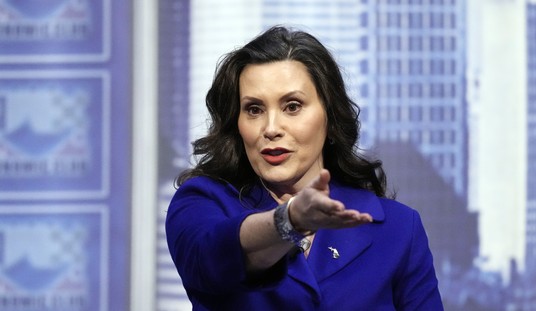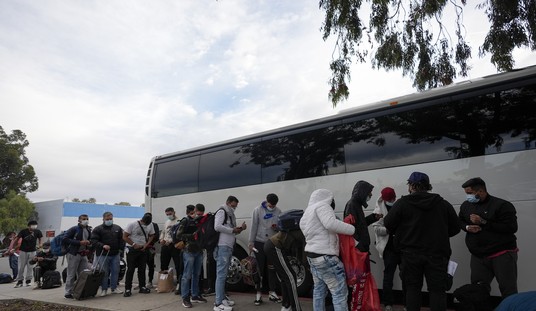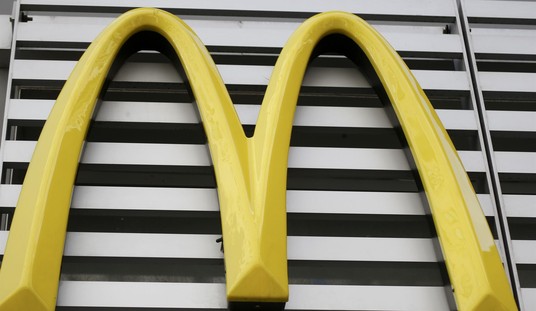
Screenshot from this video
Democrats faced a lot of mocking this week because of the debacle in Iowa when their system for determining a winner in their caucuses blew up. They still really haven’t determined a winner and with three different metrics, both Sen. Bernie Sanders (I-VT) and Mayor Pete Buttigieg have claimed victory.
But there was potentially a bigger problem for the Democrats other than not being able to count or funny business going on with the caucus.
That was the turnout.
Republicans were going to choose President Donald Trump. That was a foregone conclusion. So one would think that there wouldn’t be a lot of Republicans out, comparatively speaking. But instead, comparatively speaking, there were a lot who came out, exceeding turnout in similar years with an incumbent president, as my colleague Streiff reported.
So was the turnout for Democrats high because of disturbance over Trump? No.
The results appeared to be roughly comparable to the 2016 turnout which was about 170,000, as opposed to 2008, which had 240,000.
That spells trouble for them, when Republicans have high enthusiasm for Trump and they need a lot of anger and people out in order to have any chance.
Rachel Maddow acknowledged this and grilled Tom Perez about the implications for the Democrats on her show.
.@Maddow: "They didn't come out in droves in Iowa"
Tom Perez: "When you look at all of the turnout, the successes, we've had over 3 years, I'm certainly not going to sit here after one caucus and say, 'There's a problem, Houston'" pic.twitter.com/2TYl7aR3oD
— MSNBC (@MSNBC) February 7, 2020
From Fox News:
“Let me tell you the concern that I’ve heard voiced about what happened in Iowa this week that is not about the process failures, but that is about the prospect of beating Donald Trump in November and it’s that the turnout was flat,” Maddow said. “In 2008, turnout in the Iowa caucuses was astronomical, broke all the records and by a lot. 2016, it came back down to earth. It appears that the turnout in Iowa this year was back down in that back-down-to-earth level.”
She continued, “When I look at the numbers broadly, big Democratic numbers in Iowa, in the Iowa caucuses tend to translate into Democrat Party wins in the general election. Are Democrats not enthusiastic enough about voting and is that what those turnout numbers mean?”
Perez tried to argue it away pointing to 2018 and that they came out for healthcare, but Maddow said that didn’t charge the turnout in Iowa. “But they didn’t come out in droves in Iowa and this was the first chance in the presidential race for Democrats to show their stuff and they didn’t turn out.”
Perez dismissed it, saying it was one caucus and they would have to see what happened in New Hampshire and elsewhere. “I’m certainly not going to sit here after one caucus and say, ‘There’s a problem, Houston'”
“Well, we’ll see in New Hampshire and elsewhere,” Perez responded. “I don’t want to extrapolate much from one race. You know, with caucuses, even though there were satellite caucuses and other opportunities, you know, the reality is it is harder for people to vote if you have a shift job, if you are there.”
He added, “Make no mistake about it. Barack Obama is a historic figure. That is an incredibly high bar. And when we benchmark everything against Barack Obama, that is an undeniably high bar.”
He tried to claim there was “energy everywhere.”
Except of course, there isn’t for these candidates. Apart from folks for Bernie, no other groups seems truly jazzed, with any numbers, about any of the other candidates. It’s really a desolate field, while Republicans are jazzed up about Trump and disturbed about impeachment, wanting to keep him in and turn the Democrats out. It’s a recipe for four more years.













Join the conversation as a VIP Member